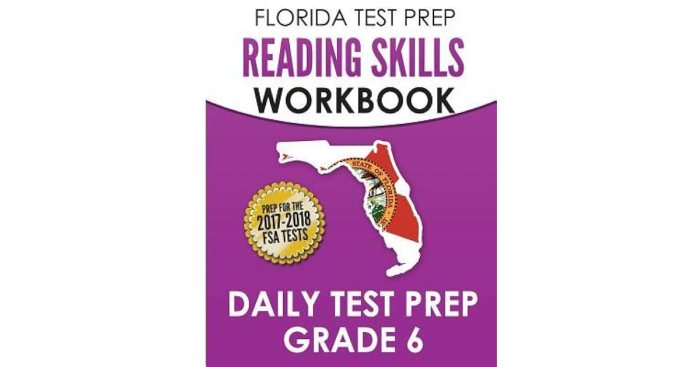Mini dbq moving towards revolution – With mini DBQs moving towards revolutionizing education, we’re exploring the evolution, benefits, challenges, and future directions of this transformative tool. Join us as we delve into the exciting world of mini DBQs and discover their potential to shape the future of learning.
Mini DBQs are concise, focused versions of traditional Document-Based Questions (DBQs) that have gained prominence in modern classrooms. They empower students to develop critical thinking, writing, and historical analysis skills, while providing educators with valuable assessment opportunities.
Historical Context of Mini DBQs
Document-Based Questions (DBQs) have evolved significantly in education, serving as valuable tools for assessing students’ historical thinking skills.
Initially introduced in the early 20th century, traditional DBQs were lengthy and complex, requiring students to analyze multiple primary and secondary sources to construct a historical argument. However, as educational practices shifted towards inquiry-based learning and critical thinking, educators sought to adapt DBQs to make them more accessible and engaging for students.
Mini DBQs in Modern Classrooms
Mini DBQs emerged as a more manageable and focused alternative to traditional DBQs. They typically present students with a smaller number of sources, often accompanied by scaffolding questions or guiding prompts, to help them develop their historical analysis skills.
Mini DBQs allow teachers to assess students’ abilities to identify and use evidence, construct arguments, and communicate their understanding of historical events and concepts. They also provide opportunities for students to practice close reading, source evaluation, and historical interpretation in a less overwhelming format.
Benefits of Mini DBQs
Mini DBQs provide numerous advantages for students, fostering critical thinking and writing skills.
By engaging with concise primary and secondary sources, students develop their ability to analyze historical evidence, identify bias, and construct well-supported arguments.
Improved Critical Thinking
- Mini DBQs encourage students to evaluate multiple perspectives and consider the context of historical events.
- They require students to synthesize information, make inferences, and draw conclusions based on evidence.
Enhanced Writing Skills
- Mini DBQs provide students with opportunities to practice writing clear and concise historical essays.
- They help students develop their ability to organize their thoughts, use evidence effectively, and write in a formal academic style.
Research Support
Studies have shown that students who engage with mini DBQs demonstrate significant improvements in:
- Historical content knowledge
- Critical thinking skills
- Writing proficiency
Challenges in Implementing Mini DBQs
Despite their effectiveness, implementing mini DBQs can pose certain challenges. One hurdle is time constraints. Mini DBQs require students to analyze primary and secondary sources, which can be time-consuming. Teachers may struggle to fit mini DBQs into their lesson plans without sacrificing other essential content.Another
challenge is student comprehension. Mini DBQs often involve complex historical concepts and require students to think critically. Some students may find it difficult to understand the sources and construct a coherent argument. Teachers need to provide scaffolding and support to help students develop these skills.
Overcoming Challenges, Mini dbq moving towards revolution
To overcome these challenges, teachers can employ several strategies. One is to carefully select sources. Choosing sources that are accessible and relevant to students’ prior knowledge can help make the task less daunting. Teachers can also provide guided practice with scaffolding activities, such as source analysis and historical context building.
Best Practices
For effective mini DBQ implementation, teachers should consider the following best practices:
- Provide clear instructions and expectations.
- Use scaffolding activities to support student learning.
- Allow ample time for students to complete the task.
- Provide feedback and support throughout the process.
- Use mini DBQs regularly to help students develop historical thinking skills.
Assessment and Evaluation of Mini DBQs: Mini Dbq Moving Towards Revolution
Assessing and evaluating student responses to mini DBQs is crucial for providing meaningful feedback and measuring student understanding. This section provides a rubric for assessment, compares different assessment methods, and offers guidance on providing effective feedback.
Rubric for Assessing Mini DBQ Responses
A rubric is a scoring guide that Artikels the criteria and levels of performance for assessing student responses. For mini DBQs, a rubric may include the following criteria:
- Thesis Statement:Clarity and relevance of the thesis statement to the prompt.
- Evidence:Use of specific and relevant evidence from the provided documents.
- Analysis:Depth and accuracy of analysis of the evidence to support the thesis.
- Contextualization:Understanding of the historical context and its impact on the issue being discussed.
- Writing:Organization, clarity, and grammar of the response.
Comparison of Assessment Methods for Mini DBQs
Various assessment methods can be used for mini DBQs, each with its own advantages and disadvantages. The following table compares three common methods:
| Assessment Method | Advantages | Disadvantages |
|---|---|---|
| Short Answer |
|
|
| Extended Response |
|
|
| Oral Presentation |
|
|
Providing Effective Feedback on Mini DBQ Responses
Providing effective feedback on mini DBQ responses is essential for student growth. Feedback should be specific, actionable, and tailored to the individual student’s needs. Consider the following guidelines:
- Focus on strengths and areas for improvement:Identify what the student did well and where they can improve.
- Provide specific examples:Cite specific parts of the response to support your feedback.
- Offer suggestions for improvement:Provide clear and actionable steps for the student to take.
- Use a constructive tone:Frame feedback in a positive and supportive manner.
- Encourage student reflection:Ask students to reflect on their own work and identify areas for growth.
Future Directions for Mini DBQs
Mini DBQs are gaining prominence in history education due to their effectiveness in developing critical thinking skills and historical understanding. As we move forward, there are several emerging trends and innovative approaches that can enhance the use of mini DBQs in the curriculum.
Incorporating Technology
- Online platforms:Utilize online platforms like Google Classroom or Schoology to share mini DBQs, provide resources, and facilitate student collaboration.
- Interactive simulations:Create interactive simulations that allow students to explore historical events and make decisions, fostering a deeper understanding of the complexities of history.
- Digital archives:Provide access to digital archives and primary sources, empowering students to engage with historical documents and artifacts.
Differentiated Instruction
Tailor mini DBQs to meet the diverse needs of students by:
- Varying complexity:Create mini DBQs with varying levels of difficulty to accommodate students with different abilities.
- Multiple perspectives:Present mini DBQs that explore multiple perspectives on historical events, encouraging students to consider diverse viewpoints.
- Accommodations:Provide accommodations for students with learning differences, such as extended time or modified texts.
Future Research
Continued research on mini DBQs is crucial to refine their effectiveness and impact:
- Longitudinal studies:Conduct longitudinal studies to track the impact of mini DBQs on student learning over time.
- Comparative analysis:Compare the effectiveness of mini DBQs to traditional DBQs and other history instructional methods.
- Technology integration:Explore the potential of technology to enhance the use of mini DBQs and promote student engagement.
Top FAQs
What are the key benefits of using mini DBQs?
Mini DBQs enhance critical thinking, improve writing skills, promote historical analysis, and provide valuable assessment data.
What are some challenges teachers face when implementing mini DBQs?
Challenges include time constraints, student comprehension, and ensuring rigor. However, effective strategies and best practices can mitigate these issues.
How can mini DBQs be effectively assessed and evaluated?
Develop rubrics, compare assessment methods, and provide constructive feedback to students to enhance their understanding and skills.

